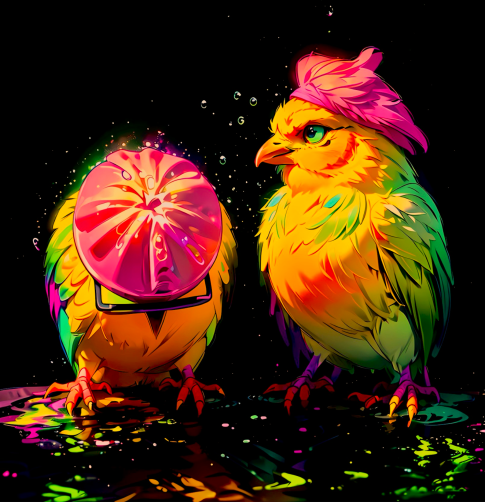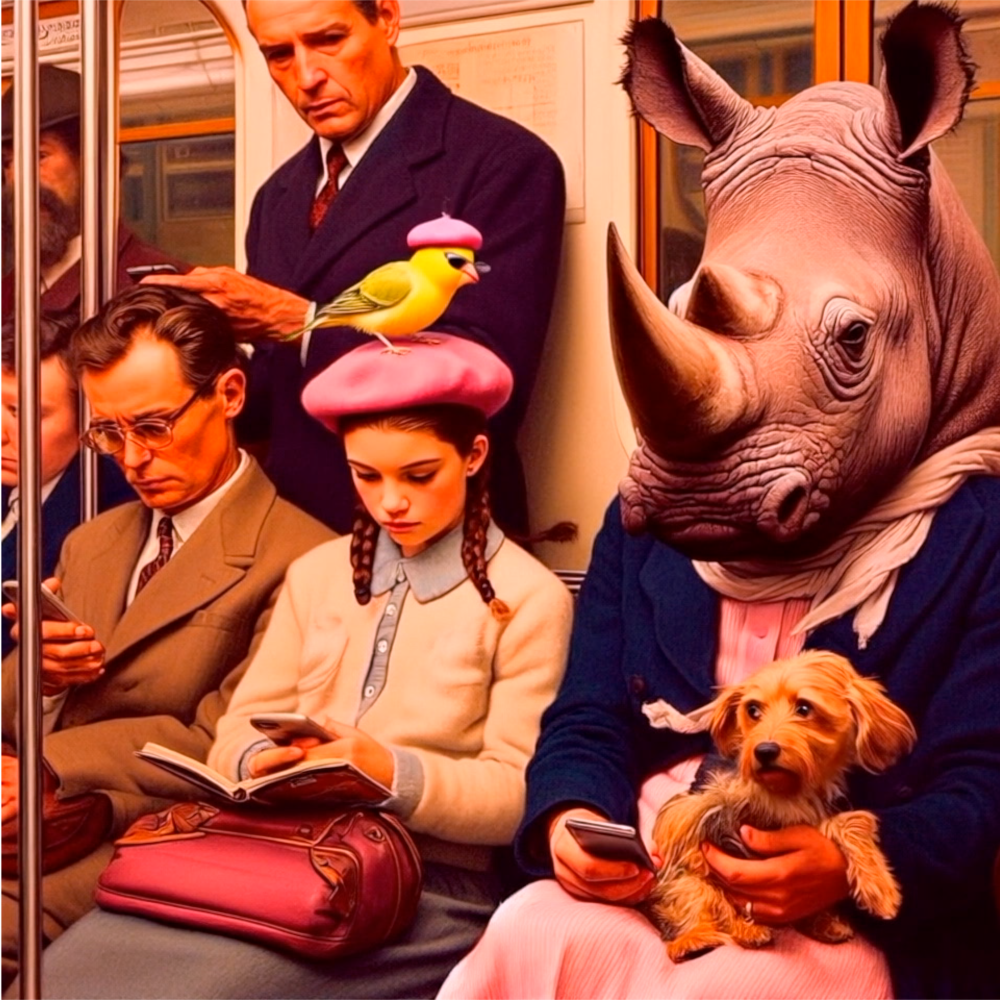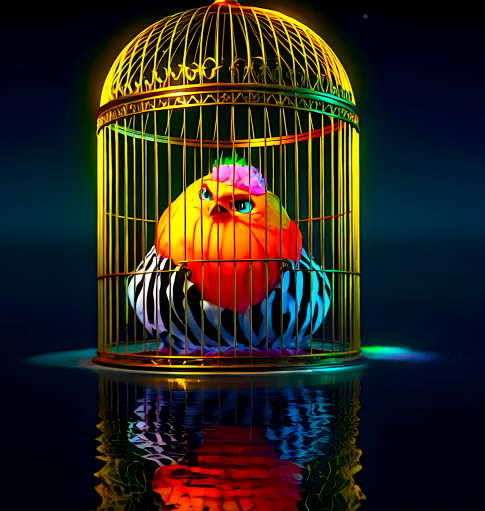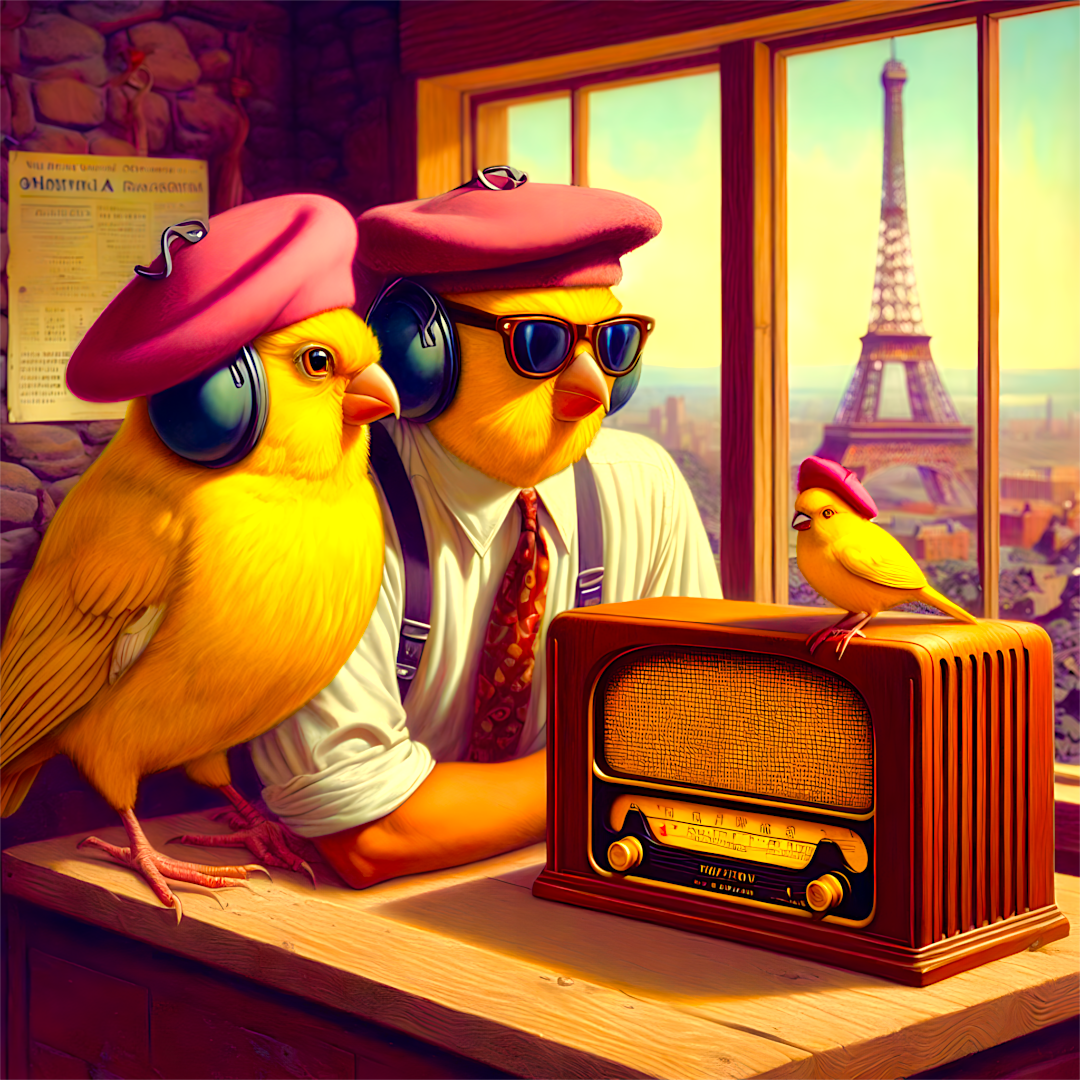Canary Canard
Welcome to Canary Canard, an absurd fiction podcast crafted in France and in the United States. Canary Canard, a strange podcast with a strange name. "What's in a name? That which we call a rose by any other name would smell as sweet," Juliet tells Romeo. She has a point, we could have chosen another name. But Canary Canard is a great alliteration, Juliet.
Also, a canary in a coal mine is a harbinger of doom, a rather apropos metaphor in this day and age, right? But instead of accepting to sacrifice itself in the interest of irresponsible human beings, our canary realizes its only chance of survival is to laugh its way out of the coal mine.
And since we wanted a name in two words only and because we are a Franco-American team, we wanted the second word to sound or even be French. As far as canard is concerned, this is what the dictionary says: “Oiseau aquatique ansériforme migrateur, au cou court, au bec aplati apte à filtrer la vase, aux pattes palmées, très courtes, et dont certaines espèces font l’objet d’un élevage important pour leur chair.” Simply put: a duck. Incidentally, in French slang, “un canard” may mean either a lump of sugar that you bob in someone’s coffee or liquor (with their permission of course) or a newspaper.
So canard is a false friend, i.e. a word that resembles or sounds similar to a word in another language, but differs significantly in meaning. In English, of course, a canard is an unfounded or false, deliberately misleading story – fitting for the fiction herein. So now you understand why we chose the word canard.
You may possibly be starting to understand what you are getting yourself into: Absurd humor? Yes. Deadpan? Yes. Nonsense? Yes. Flash fiction, very short stories? Yes, in audio form. Absurdist literature? Yes.
Choose your platform

Absurdism
Absurdism, according to the Merriam-Webster dictionary, is “a philosophy, often translated into art forms, holding that humans exist in a meaningless, irrational universe and that any search for order will bring them into direct conflict with this universe.”
Now a rather pretermitted genre, absurdist fiction emerged in the 1950s and 1960s, primarily in France and Germany, as a reaction to post-war disillusionment and the existentialist and nihilist philosophical movements of the time. Absurdist fiction explores the human condition essentially through satire and wry humor, often cryptic humor. It depicts characters responding to the lack of inherent meaning in life, usually through meaningless or merely metaphorical actions.
Key characteristics of absurdist fiction include:
- Incongruity, lack of causality and the abasement of reason,
- A proclivity for non sequiturs and a resulting frequent lack of conventional plot structure and characterization,
- Unlikely juxtapositions,
- Blatant anachronisms.
Absurdist fiction does not typically provide a clear moral or judgment about characters or their actions; it leaves interpretation up to the reader. The genre's most notable initial authors include Franz Kafka, Jean Genet, Albert Camus, Samuel Beckett, Eugène Ionesco and forerunner Alfred Jarry.

Speaking of Ionesco, “Rhinoceros” is an emblematic absurdist play that depicts an imaginary epidemic of “rhinoceritis”, a disease that terrifies all the inhabitants of a town and transforms them into rhinoceroses. In this tragic and comic metaphor for the rise of totalitarianism at the dawn of the Second World War, Ionesco shows the dangers of conformism, which, by stifling individual thought, fosters the establishment of totalitarian regimes.

And speaking of Alfred Jarry, unreasonable, gruesome and yet mirthful, “this shouldn’t be happening but somehow it is” moments are splendidly depicted in his play “Ubu Roi”.
Ubu is a grotesque character who establishes a tyrannical reign marked by triumphant stupidity, incompetence, greed and brutality. Ubu is temperamental, farcically irrational, deceitful and mean. For lack of sensible reasoning skills, he uses coercion to dismiss knowledge and sophisticated thought that he considers possibly adverse. He embodies primal vices with childlike cruelty as well as the rapaciousness of the powers that be. Some scholars consider Ubu as akin to the Beast of the Apocalypse portrayed in the Book of Revelation and later known as the False Prophet.
Jarry was 22 when he wrote “Ubu Roi” in 1896. In France, he is a highly popular figure to this day.
A household word in French, “ubuesque” transcends time and applies to situations and individuals well beyond the borders of France, of course.


